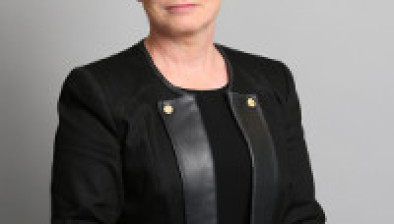Call for worldwide action on female imprisonment

A call to action has been issued by hundreds of women who have experienced imprisonment, alongside human rights organisations, lawyers and activists.
In an open letter, coordinated by Women Beyond Walls urges the organisers of a top-tier conference in Rwanda this week to highlight the issue of female imprisonment.
They contend that current and former female prisoners are being side-lined in discussions on women’s rights. The consequences of such exclusion are a dearth of funding and lack of policy reform needed to counter the concerning growth in criminalisation of women and the incidence of children detained alongside their parents.
Since 2000, there has been a nearly 60 per cent growth in the number of women and girls imprisoned, almost tripling the male prison population increase of approximately 22 per cent. By the close of 2020, the worldwide female prison population had increased by over 100,000 in the preceding decade. Research points towards domestic violence, poverty, and discriminatory laws as key factors associated with women’s imprisonment.
Tsitsi Dangarembga, renowned Zimbabwean author, and Ugandan human rights advocate and poet Stella Nyanzi, along with Amnesty International and Human Rights Watch, are among almost 250 signatories appealing to the organisers of the Women Deliver conference, which began in Kigali yesterday, to ensure that “high-level forums on women’s rights are inclusive of all women”.
Having originated from the sexual and reproductive health movement, Women Deliver has become a leading organisations globally in advocating for gender equality and the rights of women and girls.
The letter, supported by 115 organisations from around the world, also presses for action from the six “action coalitions” established at the 2021 Generation Equality Forum, where ambitious five-year plans were unveiled to accelerate progress.
The forum, the largest meeting held on women’s rights in a quarter of a century, was hosted by UN Women and the governments of Mexico and France. It saw billions of dollars pledged by philanthropists and governments in support of gender equality. However, the letter asserts: “A key group of women and girls were left out of this process – criminalised, incarcerated and formerly incarcerated women.
“Women with lived experience of the criminal justice system were invisible throughout the forum,” it added.
The forum’s midpoint meeting, set to review progress towards the Generation Equality goals, is scheduled for September.
Among the letter’s signatories is Susan Kigula, who was erroneously sentenced for the murder of her husband. After spending 16 years in prison, she became a lawyer in Uganda. Commenting on how organisations and individuals frequently dismiss women who have been in prison and exclude them from policy-making, she stated: “You don’t have to punch someone a second time by rejecting them and not wanting to associate with them. We are all human beings.”
“People should understand formerly incarcerated women need to be included. These people should not be judged by their past.”
The signatories call upon member states, UN agencies, intergovernmental bodies and organisers of future high-level meetings, including the forthcoming midpoint meeting and the United Nations’ Commission on the Status of Women in March, “to ensure that women’s incarceration is included as a priority topic”.









